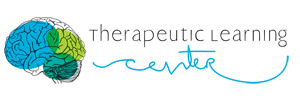 I met a mother at the gym once that told me her son was taking karate lessons in order to bring up his self-esteem. Her third grade son was a non-reader and felt terrible about himself because of his failure at school. His mother had resigned herself to the fact that her son would never read, and so was looking for other avenues to help him feel good.
I met a mother at the gym once that told me her son was taking karate lessons in order to bring up his self-esteem. Her third grade son was a non-reader and felt terrible about himself because of his failure at school. His mother had resigned herself to the fact that her son would never read, and so was looking for other avenues to help him feel good.
When the boy’s mother heard about educational therapy, she said, “How can anyone afford that?” What I wonder is, “How can anyone not?”
When my daughter was eight, her orthodontist said that if we did not start treatment right away, she would end up with TMJ (jaw problems). It was terribly expensive. How could we afford it?…How could we not?
It is important that we, as parents, provide opportunities for our kids that help them to feel good. Since a great deal of childhood is spent in the classroom, a child’s self-esteem is understandably going to be tied up in his success in that environment.
Educational therapy is an investment (like braces) in a child’s present and future. When a child realizes that for the first time, she can read her textbook, it is a very big deal. It will change her view of herself and increase her self-esteem in all arenas of her life.
Life is a series of choices. Choice of what we will do. What we won’t do. When parents seek educational help outside of school for their children, they have to make a tough decision – what will we give up or where will we squeeze? How can I afford this?… How can I not?
The clinical therapeutic approach to changing learning disabilities and attention deficits is a demanding one. It generally requires a minimum of two sessions per week and because it is so individualized and specialized, often has a slightly higher price tag than other kinds of tutoring. The question is, “Is it worth the cost?” Is it worth giving up finances, playtime, work time, sports, or other extracurricular activities?
The goal of the clinical tutorial approach is that the student (child or adult) will be working comfortably and independently at their grade level or potential; that they will be in control of their attention and learning. This is accomplished through actively involving the student in developing both the underlying thinking/learning processes that are causing the inefficiencies, as well as the needed academic skills.
Learning disabilities, Dyslexia, and attention focus problems are not diseases. They are differences in thinking or processing information that can be helped. Our work at the Therapeutic Learning Center is based on enabling individuals to process information appropriately so they will be ready to learn. The student is taught how to learn and is introduced to strategies for learning to read, etc. These students can overcome their disadvantages, learn to read, and live productive lives.
Is it worth the price?

